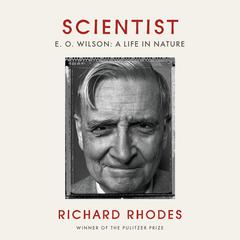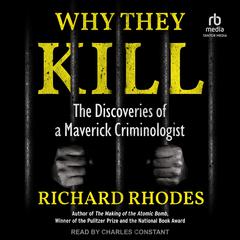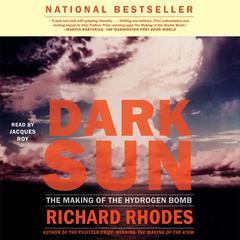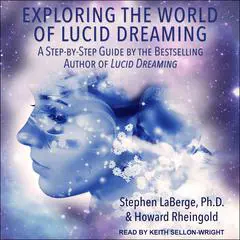 Play Audiobook Sample
Play Audiobook Sample
Arsenals of Folly: The Making of the Nuclear Arms Race Audiobook
 Play Audiobook Sample
Play Audiobook Sample
Quick Stats About this Audiobook
Total Audiobook Chapters:
Longest Chapter Length:
Shortest Chapter Length:
Average Chapter Length:
Audiobooks by this Author:
Publisher Description
From the Pulitzer Prize—winning author of The Making of the Atomic Bomb: the story of the entire postwar superpower arms race, climaxing during the Reagan-Gorbachev decade when the United States and the Soviet Union came within scant hours of nuclear war–and then nearly agreed to abolish nuclear weapons. In a narrative that moves like a thriller, Rhodes sheds light on the Reagan administration’s unprecedented arms buildup in the early 1980s, as well as the arms-reduction campaign that followed, and Reagan’s famous 1986 summit meeting with Gorbachev. Rhodes’s detailed exploration of events of this time constitutes a prehistory of the neoconservatives, demonstrating that the manipulation of government and public opinion with fake intelligence and threat inflation that the administration of George W. Bush has used to justify the current “war on terror” and the disastrous invasion of Iraq were developed and applied in the Reagan era and even before. Drawing on personal interviews with both Soviet and U.S. participants, and on a wealth of new documentation, memoir literature, and oral history that has become available only in the past ten years, Rhodes recounts what actually happened in the final years of the Cold War that led to its dramatic end. The story is new, compelling, and continually surprising–a revelatory re-creation of a hugely important era of our recent history.
Download and start listening now!
"Not his best work, but certainly worth a read. If you understand the cold war in terms of the west, especially Reagan toppling the Soviet Union, then this is a must read. Rhodes paints a pretty scary picture of the Reagan administration, especially the Neo-Cons like Pearle and Cheney whose world views pushed the expansion of the military industrial complex to new frightening heights. The hero of this book is certainly Gorbachev, and Rhodes describes the collapse of the Soviet Union as much more an internal economic matter,rather than with outside interference from the United States. This book gets you thinking about power,politics, the effects of accepted lies, as well as parallels between the Soviet system and ours. Oh yeah, this book also does a superb job of explaining the folly of SDI, the so-called Star Wars initiative, an idea in Reagan's fantasy which almost single-handedly destroyed the peace process that unfolded in the later 1980s. I am a huge fan of this Richard Rhodes-do not be dissuaded by my words at the beginning of this review. Anything by him is meaty, scholarly and vividly rendered. I just feel that other works like "Masters of Death," "Why They Kill?," and "The Making of the Atomic Bomb" are quite simply superior. I would like to meet the man."
— Patrick (4 out of 5 stars)
Awards
-
One of the 2007 New York Times Book Review 100 Notable Books for Nonfiction
Arsenals of Folly Listener Reviews
-
" A tremendous, often infuriating, always briskly told history of the USA/USSR nuclear arms race--the whys and hows of the ridiculously mammoth buildup, the tension and close calls it caused, and the eventual massive reduction of both strategic and tactical forces--with an emphasis on the Gorbachev and Reagan years. Richard Rhodes knows how to tell a good anecdote, and is astonishly both brief and clear in relaying this epic. And in case you need two more despicable, smug, self-serving right-wingers to hate, look no further than Paul Nitze and Richard Pearle. "
— Scott, 12/28/2013 -
" Richard Rhodes should stick to science writing. While he can lucidly explain a scientific idea in colloquial terms, he does not have the ability or the stomach to lay out policy arguments, as his moralizing gets in the way. "
— Josh, 12/5/2013 -
" Rhodes is a wonderful writer, and he makes the complexities of the nuclear arms race understandable and the follies of that race seem almost inevitable, with an internal logic that propelled it forward against what any outside observer would recognize as foolishness. Great quote from Bismarck included: "Fools learn from experience. Wise men learn from the experience of others." "
— Mk100, 11/20/2013 -
" What Ike meant when he asked what the military cost. "
— C, 10/20/2013 -
" Sufficiently complete history of the Cold War. Becomes a bit tedious when discussing negotiations between Gorbachev and Reagan, but leaves out no details otherwise. As for the writing, I don't know if there are many better than Rhodes. "
— R, 9/23/2013 -
" Another excellent book in Richard Rhodes' series on the history of the nuclear age. It was dismaying to learn how many alternatives to the massive nuclear arms race were open to the US and the Soviet Union for the last sixty years. "
— Joe, 8/8/2013 -
" excellent! It is obvious Rhodes did his research! Well written! "
— Linda, 2/21/2012 -
" Sufficiently complete history of the Cold War. Becomes a bit tedious when discussing negotiations between Gorbachev and Reagan, but leaves out no details otherwise. As for the writing, I don't know if there are many better than Rhodes. "
— R, 8/4/2009 -
" The Russians dumped sand and lead onto Chernobyl because water poured on the meltdown site would ignite the water's elements, creating an explosion far greater than the meltdown itself. "
— Ethan, 4/14/2009
About Richard Rhodes
Richard Rhodes is the author of twenty-six books including The Making of the Atomic Bomb, which won the Pulitzer Prize in Nonfiction, the National Book Award, and the National Book Critics Circle Award. He graduated from Yale University and has received fellowships from the Ford Foundation, the National Endowment for the Arts, the John Simon Guggenheim Memorial Foundation, and the Alfred P. Sloan Foundation. He has been a visiting scholar at Harvard, MIT, and Stanford and a host and correspondent for documentaries on American public television.
About Robertson Dean
Robertson Dean has played leading roles on and off Broadway and at dozens of regional theaters throughout the country. He has a BA from Tufts University and an MFA from Yale. His audiobook narration has garnered ten AudioFile Earphones Awards. He now lives in Los Angeles, where he works in film and television in addition to narrating.



































